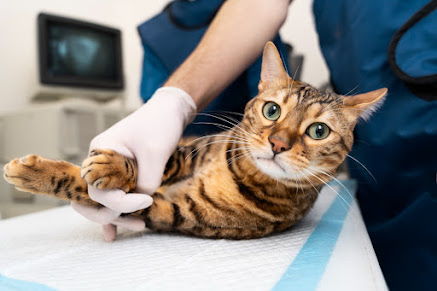How to Help Your Dog Beat Food Allergies?
Food allergies in dogs, although rare, can be a cause for concern. However, with proper management, these allergies can be effectively controlled. Detecting food allergies can be challenging due to overlapping symptoms with other conditions, making a visit to the vet crucial for accurate diagnosis. This article explores the causes, symptoms, diagnosis, and treatment of food allergies in dogs, emphasizing the importance of a hypoallergenic diet in managing these allergies.
Understanding Food Allergies in Dogs:
- Definition of food allergies and immune response
- Development of food allergies in dogs after prolonged exposure
- Common allergenic ingredients in dog food
Symptoms of Food Allergies in Dogs:
- Onset of food allergies in puppies and adult dogs
- Skin issues: itching, redness, rashes, and hair loss
- Chronic ear infections and their connection to dietary factors
- Gastrointestinal problems, vomiting, and diarrhea
- Behavioral changes due to allergen exposure
Causes and Diagnosis of Food Allergies:
- Genetic predisposition and early environmental exposure
- Ruling out other causes of skin problems
- Importance of flea control and treatment of environmental allergies
- Veterinary examination and specific signs of food allergies
Treatment and Management of Food Allergies:
If you think your dog may have a food allergy, the first step is to see your veterinarian. They can perform a series of tests to rule out other possible causes of your dog's symptoms and to identify the specific food or foods that are causing the allergy.
Once you know what your dog is allergic to, you can start to manage the allergy by avoiding the offending food. This may mean changing your dog's diet to a hypoallergenic food or a food that is specifically formulated for dogs with food allergies.
In addition to avoiding the allergens, there are a few other things you can do to help your dog beat food allergies:
Give your dog a healthy diet: A healthy diet will help to keep your dog's skin and coat healthy and can help to reduce the severity of allergic reactions.
Keep your dog's skin clean: Regularly bathing your dog and cleaning their ears can help to remove allergens and prevent infection.
Use hypoallergenic products: There are a number of hypoallergenic shampoos, conditioners, and other products that can help to soothe your dog's skin and reduce itching.
Manage stress: Stress can worsen food allergies, so it is important to manage your dog's stress levels. This may involve providing them with plenty of exercise, mental stimulation, and a calm environment.
With proper management, most dogs with food allergies can live happy and healthy lives. If you are concerned that your dog may have a food allergy, talk to your veterinarian. They can help you to diagnose the allergy and develop a treatment plan that will keep your dog comfortable.
Here are some additional tips for helping your dog beat food allergies:
Be patient: It may take some time to find a food that your dog does not react to. Be patient and persistent, and your dog will eventually find a food that they can enjoy without any problems.
Work with your veterinarian: Your veterinarian is your best resource for managing your dog's food allergies. They can help you to develop a treatment plan that is right for your dog and can answer any questions you have.
Educate yourself: There is a lot of information available about food allergies in dogs. Do some research so that you can understand the condition and how to manage it.
With proper care, your dog can live a long and healthy life even with food allergies.






